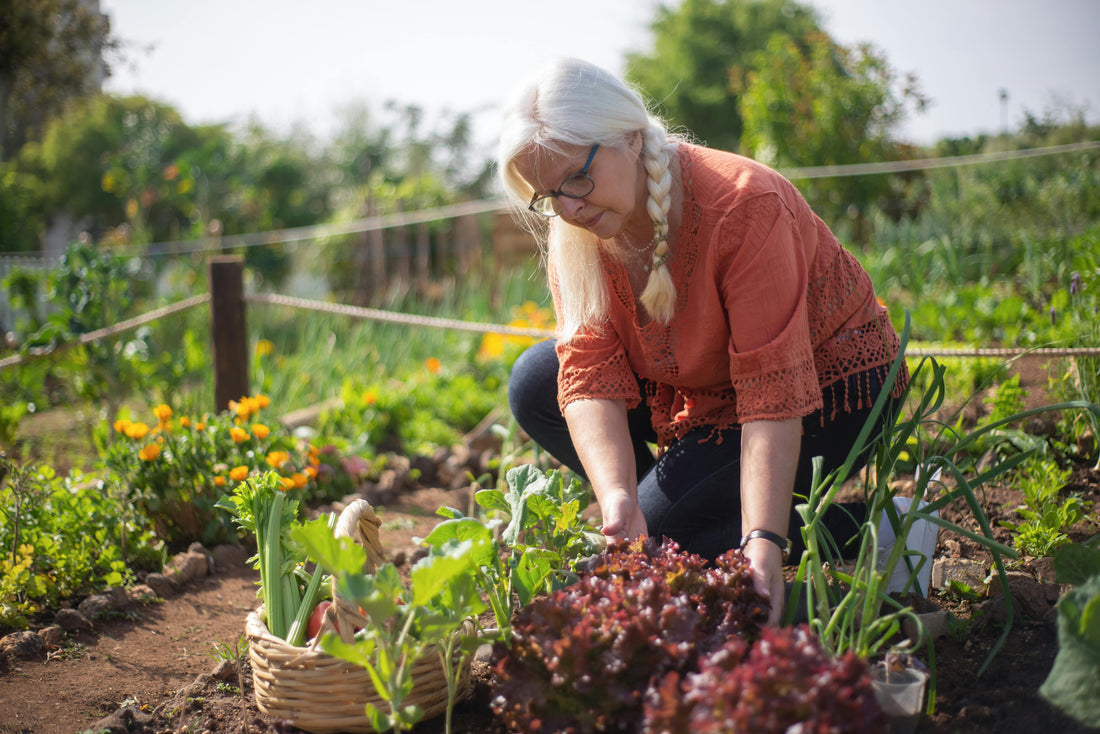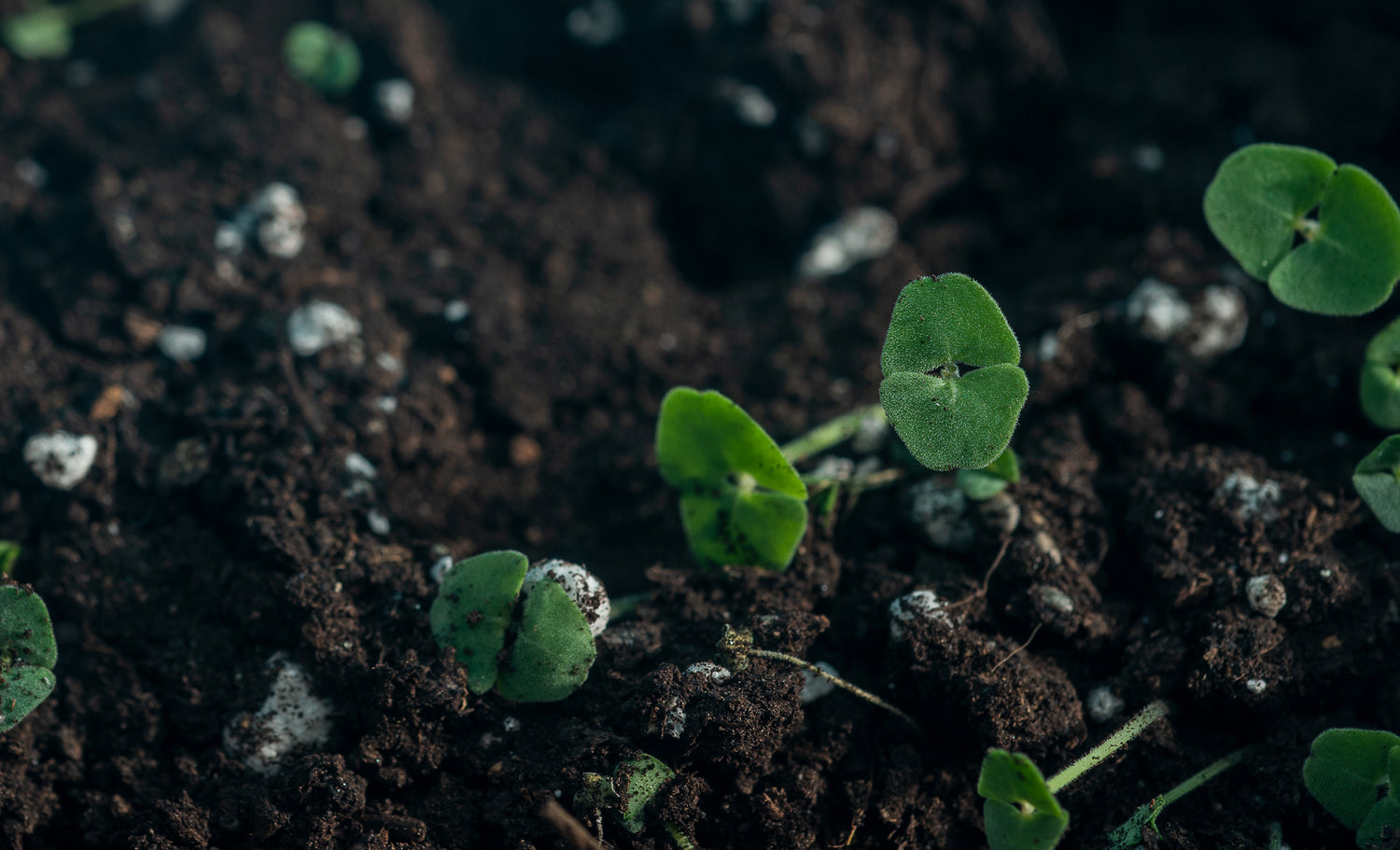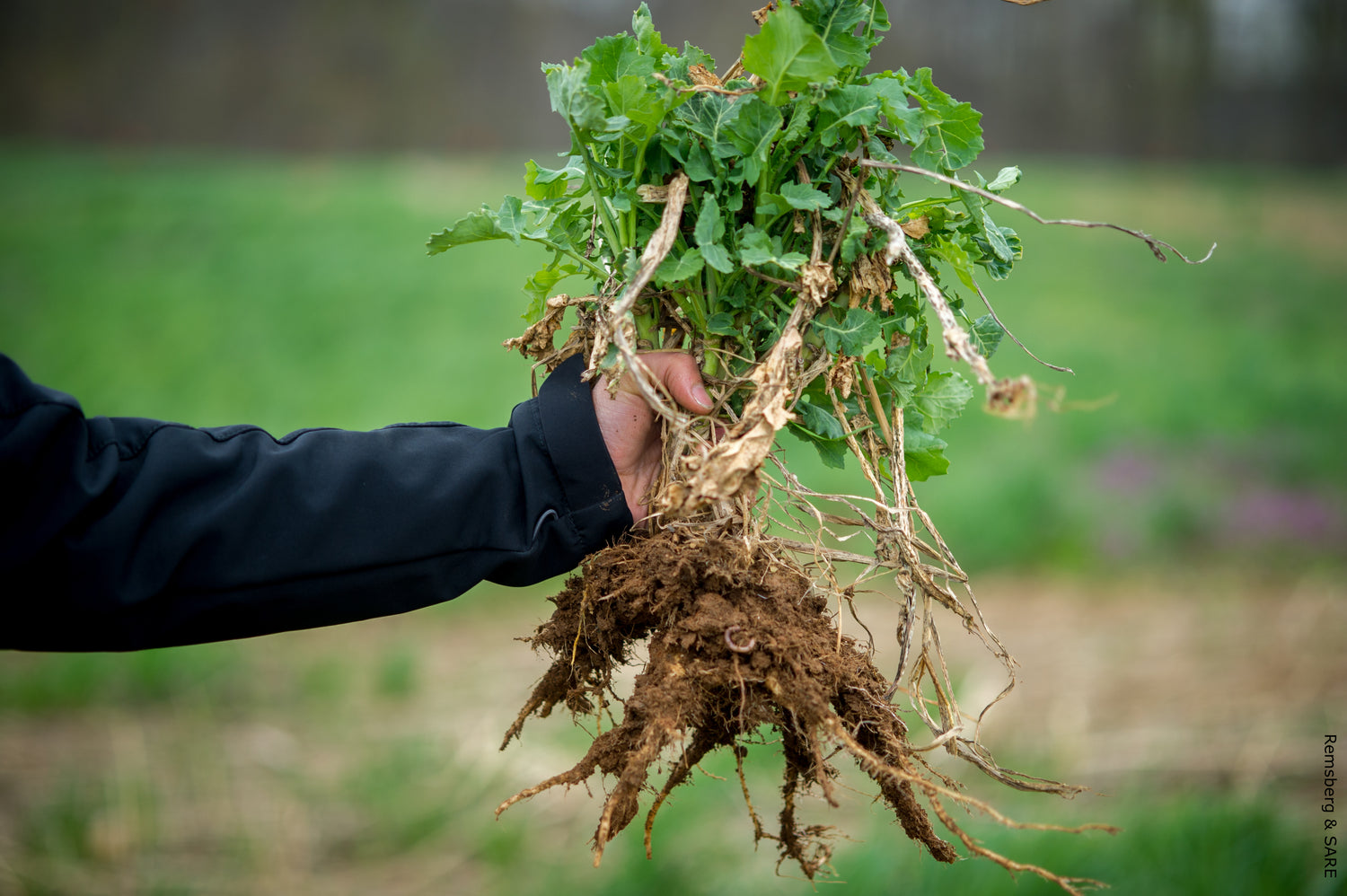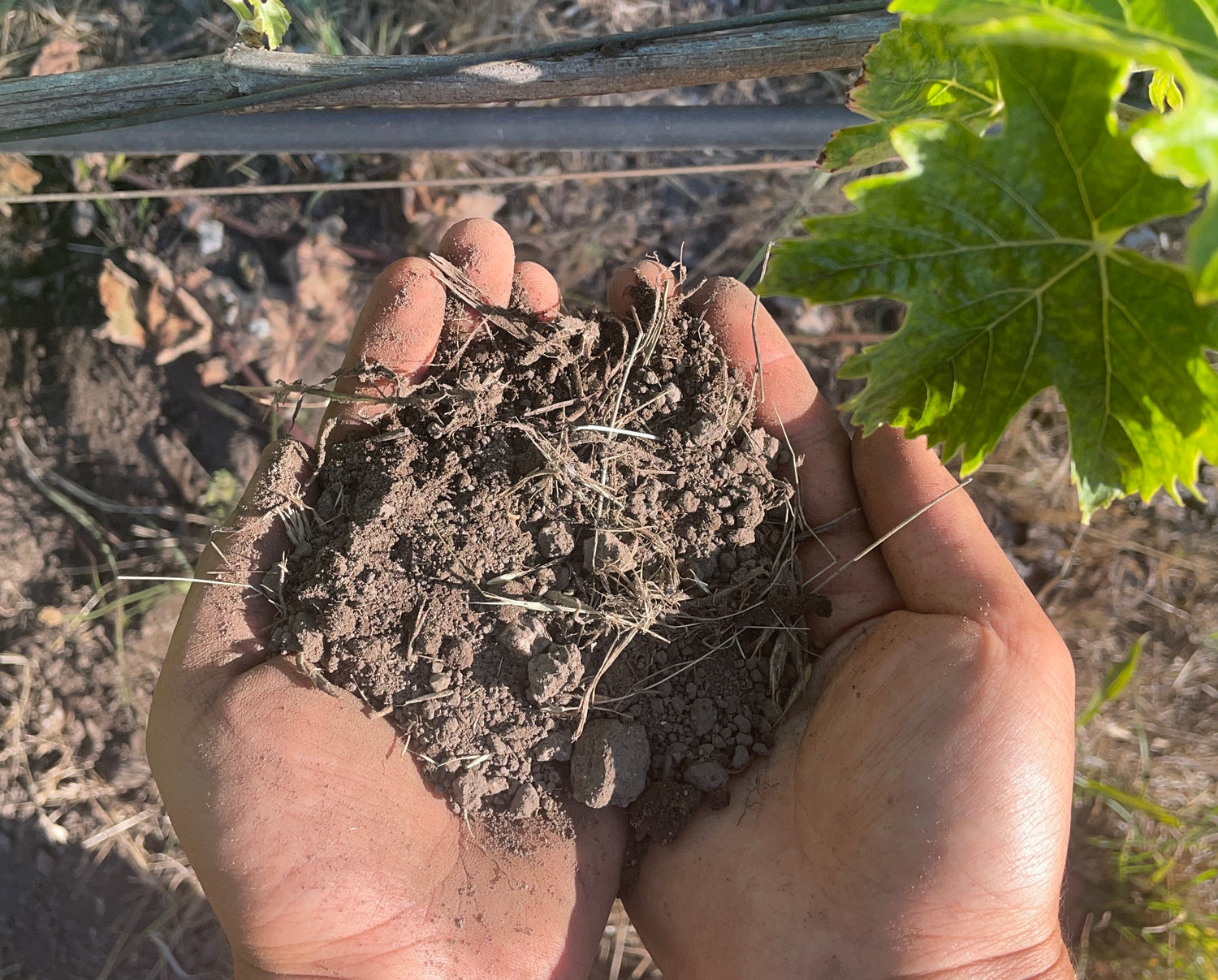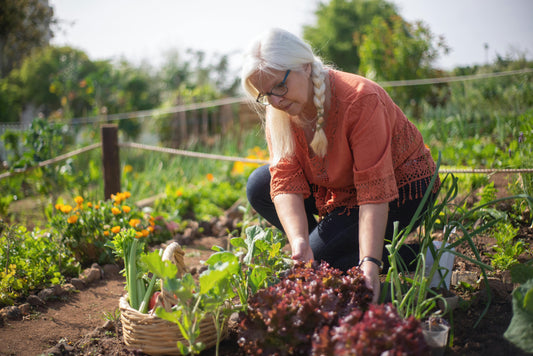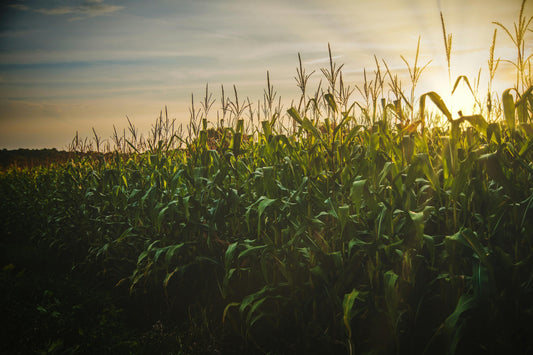Soil testing has become essential for successful gardening and agriculture across diverse growing regions from California's Mediterranean climate to Colorado's high-altitude conditions. Advanced laboratory analysis now competes alongside traditional at-home testing methods, with regional soil challenges requiring specialized attention. Understanding which soil test kit best meets your specific needs can save money on unnecessary amendments while maximizing plant health and productivity.
Best Soil Test Kits for 2025: Professional Laboratory vs At-Home Testing
Professional laboratory soil testing provides comprehensive soil health analysis with lab-grade accuracy, while at-home test kits offer convenience and immediate results for basic soil parameters like pH and primary nutrients.
Why Soil Testing Matters More Than Ever
Modern agriculture and gardening face increasing challenges from soil degradation, contamination concerns, and climate variability. The USDA Natural Resources Conservation Service emphasizes that soil health assessment requires measuring multiple indicators including physical, chemical, and biological properties to understand how well soil performs its functions. Professional soil testing removes guesswork from soil management decisions, potentially saving hundreds of dollars in unnecessary fertilizer applications while preventing plant nutrient deficiencies.
Accurate soil analysis becomes particularly critical when dealing with contamination concerns, heavy metal accumulation, or establishing organic certification requirements. Understanding your soil's baseline chemistry enables precise amendment applications that support both plant health and environmental sustainability.
Alluvial Soil Lab Professional Testing Kits
Professional laboratory testing kits offer unmatched accuracy and comprehensive analysis. All Alluvial Soil Lab kits include professional sample collection materials and prepaid shipping for laboratory analysis.
| Alluvial Soil Lab Professional Test Kits |
|---|
Complete Soil Health Test KitPrice: From $162.00 The flagship comprehensive analysis kit covering over 20 parameters including macro and micronutrients, soil pH, organic matter, cation exchange capacity, and soil structure indicators. This professional testing kit provides complete nutritional profiling with specific amendment recommendations tailored to your growing goals. Includes professional sampling materials and prepaid USPS shipping. |
Heavy Metals Test KitPrice: From $106.00 Essential safety screening kit for lead, arsenic, cadmium, and other toxic metals that can accumulate in soil from industrial activity, contaminated water, or historical land use. Critical for urban gardening, children's play areas, and food production safety. Professional laboratory analysis kit includes all sampling materials and prepaid shipping. |
Holistic Soil Health Assessment Kit (Haney Test)Price: From $238.00 Advanced biological analysis kit measuring soil respiration, microbial activity, and nutrient cycling capacity. This professional testing kit evaluates soil's living ecosystem health, providing insights into biological nutrient availability and soil regenerative potential. Includes specialized sampling materials and prepaid laboratory shipping. |
Full Chemistry Test KitPrice: From $109.00 Comprehensive chemical analysis kit including pH, electrical conductivity, macro and micronutrients, and cation exchange capacity. Ideal for precision agriculture applications requiring detailed nutrient management planning. Professional laboratory testing kit includes complete sampling materials and prepaid USPS shipping. |
Basic Soil Health Test KitPrice: From $66.00 Entry-level professional analysis kit covering essential parameters: pH, organic matter, and primary nutrients (nitrogen, phosphorus, potassium). Perfect for home gardeners seeking professional accuracy without comprehensive testing. Includes professional sampling materials and prepaid shipping for laboratory analysis. |
Comprehensive Soil Contamination Test KitPrice: $886.00 Extensive contamination screening kit for pesticides, herbicides, and heavy metals. Essential for remediation projects, property development, or areas with suspected contamination history. Professional laboratory testing kit includes specialized sampling materials and prepaid shipping for comprehensive analysis. |
Non-Alluvial Soil Lab Test Kit Mentions
Other soil test kit options are available in the marketplace, offering various testing approaches from mail-in laboratory analysis to at-home testing capabilities.
| Other Test Kit Options |
|---|
MySoil Test Kit (Mail-In)Price: $30-35 Independent testing comparing MySoil results to Kansas State University laboratory analysis showed very close correlation, making it a reliable choice for basic soil assessment. Mail-in testing kit with prepaid shipping provides pH and 13 nutrient analyses with clear bar charts and fertilizer recommendations delivered within 6-8 days. |
Redmond Agriculture Soil Test Kit (Mail-In)Price: Approximately $30 This mail-in kit combines accurate laboratory analysis with sustainable soil amendment recommendations. Includes prepaid USPS return label with results delivered in 6-8 days including custom application rates and recommendations for organic amendments. |
Luster Leaf Rapitest Kit (At-Home Testing)Price: $15-20 This budget-friendly at-home testing kit provides 40 tests for pH, nitrogen, phosphorus, and potassium using color-coded capsules, though color interpretation requires practice and lighting considerations. Includes growing recommendations for over 450 plant varieties with immediate results. |
Whitetail Institute Laboratory Soil Test Kit (Mail-In)Price: $20-25 Specifically designed for food plot applications, this mail-in testing kit analyzes pH, phosphorus, potassium, calcium, and magnesium with crop-specific fertilizer and lime recommendations. Includes everything needed for sample collection and prepaid shipping with results typically available within one week. |
Soil Savvy Test Kit (Mail-In)Price: $30-35 Laboratory analysis kit testing 14 nutrients with comprehensive fertilizer recommendations delivered within 7-11 days, designed to match university lab standards. Single-use mail-in kit ideal for detailed soil assessment with prepaid shipping included. |
Regional Soil Testing Considerations
Different regions across the United States face unique soil challenges that require targeted testing approaches. Understanding your local soil conditions helps determine which parameters are most critical to analyze.
California Soil Testing Priorities
California's diverse agricultural zones present varied soil challenges from alkaline soils in the Central Valley to acidic coastal conditions. Heavy metal contamination screening becomes particularly important in urban areas and former industrial sites. Salinity testing is crucial for irrigation management, especially in drought-prone regions. Organic matter analysis helps address soil degradation from intensive farming practices.
Texas Soil Characteristics
Texas soils often exhibit high clay content and alkaline pH levels, requiring specific attention to drainage and nutrient availability. Calcium carbonate deposits can interfere with phosphorus uptake, making comprehensive chemistry testing essential. Salt accumulation from irrigation sources necessitates electrical conductivity monitoring in many regions.
Oregon and Washington Soil Conditions
Pacific Northwest soils typically show acidic pH levels due to high rainfall, requiring lime application guidance through professional testing. Organic matter content varies significantly between regions, with forest soils differing markedly from agricultural areas. Heavy metal testing becomes important near urban centers and former mining areas.
Colorado High-Altitude Soil Challenges
Colorado's elevation and climate create unique soil conditions including alkaline pH, low organic matter, and challenging growing seasons. Professional testing helps identify micronutrient deficiencies common at high altitudes. Soil structure analysis becomes critical for areas with clay-heavy soils that freeze and thaw repeatedly.
Signs Your Soil Needs Testing
Recognizing when soil testing becomes necessary can prevent costly fertilizer mistakes and plant health problems before they become severe.
Visual Plant Symptoms
- Yellowing leaves despite adequate watering
- Stunted growth or poor flowering
- Uneven plant development across your garden
- Frequent pest or disease problems
- Poor germination rates
- Plants that struggle despite proper care
Soil Appearance Issues
- Compacted soil that water runs off rather than soaking in
- White crusty deposits on soil surface
- Unusual soil colors or odors
- Poor drainage or constantly waterlogged conditions
- Soil that becomes extremely hard when dry
Garden Performance Problems
- Vegetables that don't reach expected size
- Fruit trees with poor production
- Lawn areas with persistent brown spots
- New plantings that consistently fail to establish
- Organic matter that decomposes too slowly
Best Soil Test Kits for Specific Applications
Best Soil Test Kit for Vegetable Gardens
Vegetable production requires comprehensive nutrient analysis including nitrogen, phosphorus, potassium, and micronutrients. Alluvial Soil Lab's Complete Soil Health Test Kit provides the detailed analysis needed for optimal vegetable production, including organic matter content and biological activity indicators. The heavy metals screening ensures food safety, particularly important for urban gardens.
Best Soil Test Kit for Lawn Care
Lawn maintenance focuses primarily on pH optimization and nitrogen management. For basic lawn care, MySoil Test Kit provides adequate pH and nutrient analysis at an economical price point. However, problematic lawns benefit from Alluvial's Full Chemistry Test Kit to identify underlying issues with soil structure, organic matter, or micronutrient deficiencies.
Best Organic Soil Testing Kit
Organic farming and gardening requires detailed analysis of soil biology and organic matter dynamics. Alluvial's Holistic Soil Health Assessment (Haney Test) specifically measures biological activity, soil respiration, and nutrient cycling capacity essential for organic growing systems. This test provides insights into soil ecosystem health that conventional testing cannot measure.
Best Professional Soil Analysis Kit
Commercial growers and serious gardeners need laboratory-grade accuracy with comprehensive parameter coverage. Alluvial's Complete Soil Health Test Kit delivers professional-quality analysis with over 50 parameters, matching or exceeding university extension lab capabilities while providing faster turnaround times and customized recommendations.
When to Test Your Soil
Optimal Timing for Soil Testing
Spring testing (March-May) allows time for soil amendments before planting season. Fall testing (September-November) provides baseline data and enables winter amendment applications. Avoid testing when soil is saturated from recent rainfall or during drought conditions when soil composition may not reflect normal conditions.
How Often to Test Soil
Established gardens benefit from comprehensive testing every 2-3 years, with annual pH monitoring using simple test kits. New gardens should undergo baseline testing before initial planting, then annually for the first three years to track improvement progress. Problem areas may require more frequent testing to monitor remediation efforts.
Seasonal Soil Testing Strategy
Spring testing focuses on pH adjustment and primary nutrient needs before planting. Mid-season testing helps monitor nutrient depletion in intensive growing areas. Fall testing evaluates soil organic matter changes and plans winter cover crop strategies. Winter testing works well for indoor gardeners and greenhouse operations.
DIY Soil Test vs Laboratory Analysis
Accuracy Comparison
Professional laboratory testing provides precision within ±0.2 pH units and ±5 ppm for major nutrients, while DIY test kits typically offer ±0.5 pH accuracy with broader nutrient ranges. Laboratory analysis includes quality control measures, standardized procedures, and calibrated equipment ensuring consistent results across samples.
Cost-Benefit Analysis
DIY kits offer immediate results at $15-35 per test but provide limited parameter coverage. Professional testing costs $66-250 but includes comprehensive analysis, specific recommendations, and technical support. For serious gardening investments, professional testing often saves money by preventing over-fertilization and targeting actual soil needs.
When to Choose Each Option
DIY testing works well for routine pH monitoring, basic troubleshooting, and educational purposes. Professional testing becomes essential for baseline soil assessment, contamination concerns, organic certification, high-value crop production, and problem diagnosis when plants show unexplained symptoms.
Understanding Soil pH Levels
Soil pH directly affects nutrient availability and plant health, making it the most critical parameter to monitor in any soil testing program.
pH Scale and Plant Preferences
Most vegetables thrive in slightly acidic to neutral soil (pH 6.0-7.0), while acid-loving plants like blueberries prefer pH 4.5-5.5. Alkaline-tolerant plants can handle pH 7.5-8.5, common in western states. pH outside optimal ranges locks up nutrients even when present in adequate quantities.
Regional pH Patterns
Western states typically have alkaline soils (pH 7.5+) due to low rainfall and limestone bedrock. Eastern regions often show acidic conditions (pH 5.5-6.5) from higher precipitation leaching basic minerals. Pacific Northwest soils tend toward acidity due to coniferous forest influence and high rainfall.
pH Adjustment Strategies
Acidic soils require lime application, with rates determined by soil testing and buffer capacity. Alkaline soils need sulfur or organic matter additions to lower pH gradually. Professional soil testing provides specific application rates preventing over-correction that can damage soil biology.
NPK Ratios Explained
Nitrogen (N) - Growth and Greenery
Nitrogen drives vegetative growth and leaf development but depletes quickly in sandy soils and high-rainfall areas. Excess nitrogen delays flowering and fruit production while making plants susceptible to pest problems. Soil testing reveals available nitrogen levels and guides application timing.
Phosphorus (P) - Root and Flower Development
Phosphorus supports root growth, flowering, and fruit development but becomes unavailable in alkaline soils common in western states. Over-application can interfere with micronutrient uptake and contribute to water pollution. Professional testing determines actual phosphorus availability versus total content.
Potassium (K) - Overall Plant Health
Potassium strengthens plant disease resistance, cold tolerance, and stress response. Clay soils typically hold potassium well, while sandy soils require more frequent applications. Proper soil testing identifies potassium levels and guides supplement decisions.
Common Soil Problems and Solutions
Compacted Soil Issues
Soil compaction reduces root penetration, water infiltration, and air exchange. Professional testing identifies bulk density problems and guides organic matter applications. Gypsum applications can help clay soil structure, while sand additions typically worsen compaction problems.
Nutrient Lockup Problems
Extreme pH levels prevent nutrient uptake even when nutrients are present. Iron chlorosis appears in alkaline soils, while aluminum toxicity affects plants in very acidic conditions. Comprehensive soil testing identifies both pH issues and nutrient imbalances requiring correction.
Contamination Concerns
Urban soils may contain lead from old paint, industrial chemicals, or petroleum products. Professional contamination testing becomes essential before food production, especially in children's areas. Alluvial's Comprehensive Contamination Test Kit screens for multiple contaminant categories providing complete safety assessment.
| Test Parameter | Alluvial Complete | Alluvial Basic | MySoil | Redmond | Rapitest | Whitetail | Soil Savvy |
|---|---|---|---|---|---|---|---|
| pH Analysis | ✓ | ✓ | ✓ | ✓ | ✓ | ✓ | ✓ |
| Primary Nutrients (N-P-K) | ✓ | ✓ | ✓ | ✓ | ✓ | ✓ | ✓ |
| Secondary Nutrients (Ca, Mg, S) | ✓ | ✓ | ✓ | ✓ | — | Partial | ✓ |
| Micronutrients | ✓ | Limited | ✓ | ✓ | — | — | ✓ |
| Organic Matter | ✓ | ✓ | — | — | — | — | — |
| Cation Exchange Capacity | ✓ | — | — | — | — | — | — |
| Heavy Metals Screening | Separate Test | — | — | — | — | — | — |
| Soil Biology Assessment | Advanced Test | — | — | — | — | — | — |
| Custom Recommendations | ✓ | ✓ | ✓ | ✓ | Basic | ✓ | ✓ |
| Contamination Screening | Separate Test | — | — | — | — | — | — |
Detailed Test Coverage Comparison
Professional laboratories dry, sort, grind, and sieve soil samples to remove rocks and debris before analysis, while most at-home kits require combining whole soil samples with water to create a testing slurry. This fundamental difference in sample preparation significantly affects accuracy and reliability.
Professional testing offers several advantages: standardized procedures ensure consistent results, quality-controlled reagents maintain accuracy over time, and comprehensive analysis includes parameters impossible to measure with home kits. Laboratory testing provides actual concentration values in parts per million rather than qualitative ratings, enabling precise fertilizer application calculations.
At-home testing provides immediate results and convenience for routine monitoring, making it valuable for frequent pH checks or basic nutrient screening. However, color-based interpretation can be challenging under varying lighting conditions, and reagent quality may decline over time.
Choosing the Right Test for Your Needs
Professional Laboratory Testing is Best For:
- Establishing baseline soil health for new properties
- Organic certification requirements
- Contamination concerns or urban gardening
- High-value crop production
- Precision agriculture applications
- Problem diagnosis when plants show unexplained symptoms
At-Home Testing Works Well For:
- Routine pH monitoring
- Basic nutrient screening
- Budget-conscious gardeners
- Immediate results needs
- Educational purposes
- Multiple test locations
Proper Soil Sampling Techniques
Accurate results depend on proper sampling regardless of testing method. USDA guidelines recommend collecting soil samples from multiple locations within the testing area, mixing thoroughly, and removing plant debris and rocks. Sample at consistent depth (typically 6 inches for gardens, 3 inches for lawns) and avoid areas near compost piles, septic systems, or recent fertilizer applications.
For laboratory testing, collect approximately three cups of soil from 5-7 different locations within your garden area. Mix thoroughly in a clean bucket, breaking up large clumps before filling the sample container. Timing matters: avoid sampling when soil is saturated or extremely dry.
Making Sense of Your Results
Professional soil test results provide specific amendment recommendations based on your growing goals. Pay attention to pH levels first, as nutrient availability depends heavily on proper pH range. Most vegetables thrive in slightly acidic to neutral soil (pH 6.0-7.0), while acid-loving plants like blueberries prefer pH 4.5-5.5.
Nutrient recommendations should consider existing soil levels, plant requirements, and environmental factors. Over-fertilizing can be as problematic as under-fertilizing, potentially causing nutrient imbalances or environmental pollution. Professional testing typically provides application rates tailored to your specific soil conditions and growing area size.
When to Retest Your Soil
Annual testing helps track improvement progress and adjust management strategies. Test in early spring before planting or fall after harvest for consistent timing. More frequent testing may be necessary when establishing new gardens, addressing contamination issues, or making significant management changes.
Professional testing every 2-3 years provides comprehensive soil health monitoring, while annual at-home pH testing helps maintain optimal growing conditions between detailed analyses.
Sources
- USDA Natural Resources Conservation Service. Soil Health Assessment. nrcs.usda.gov
- Montana State University Extension. Soil Testing: Test Kits vs Lab Analysis. landresources.montana.edu
- Bob Vila. The Best Soil Test Kits According to Our Tests. bobvila.com
- Forestry.com. Best Soil Test Kits of 2025: Top Picks for Lawn, Garden, and Farming. forestry.com
- USDA Natural Resources Conservation Service. Soil Health Educators Guide. nrcs.usda.gov
- Redmond Agriculture. Soil Test Kit Product Information. redmondagriculture.com
- Whitetail Institute. Food Plot Soil Test Kits. whitetailinstitute.com
Disclaimer: The information provided about non-Alluvial Soil Lab testing products is for informational purposes only. We cannot guarantee the accuracy of pricing, availability, or performance of third-party products. This article does not constitute a recommendation or endorsement of any non-Alluvial products mentioned. Consumers should conduct their own research and evaluation before purchasing any soil testing products. Alluvial Soil Lab is not responsible for the quality, accuracy, or results of testing performed by other companies or products mentioned in this article.

